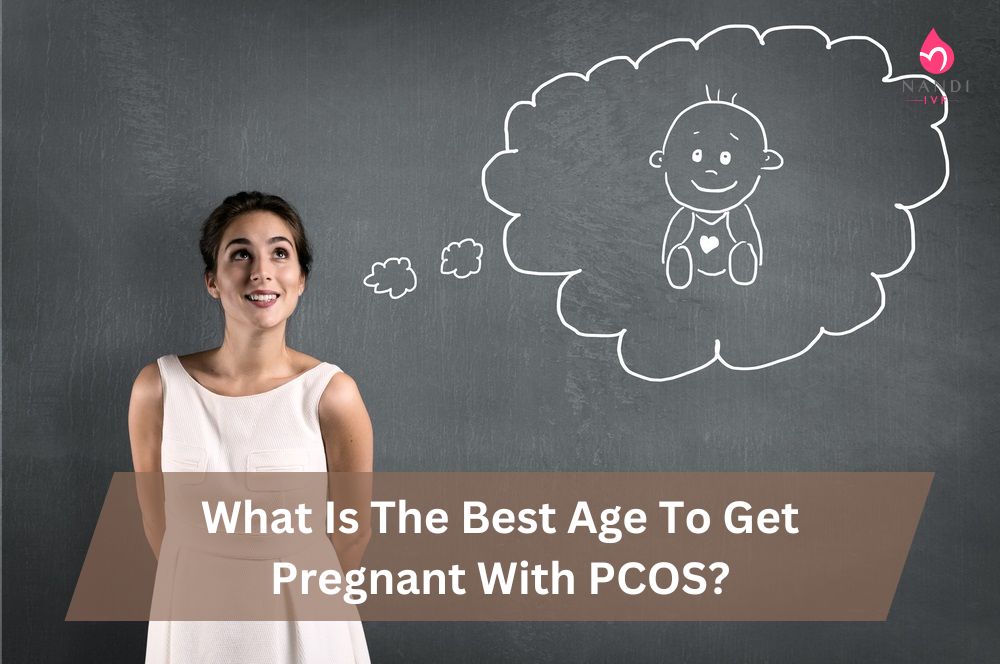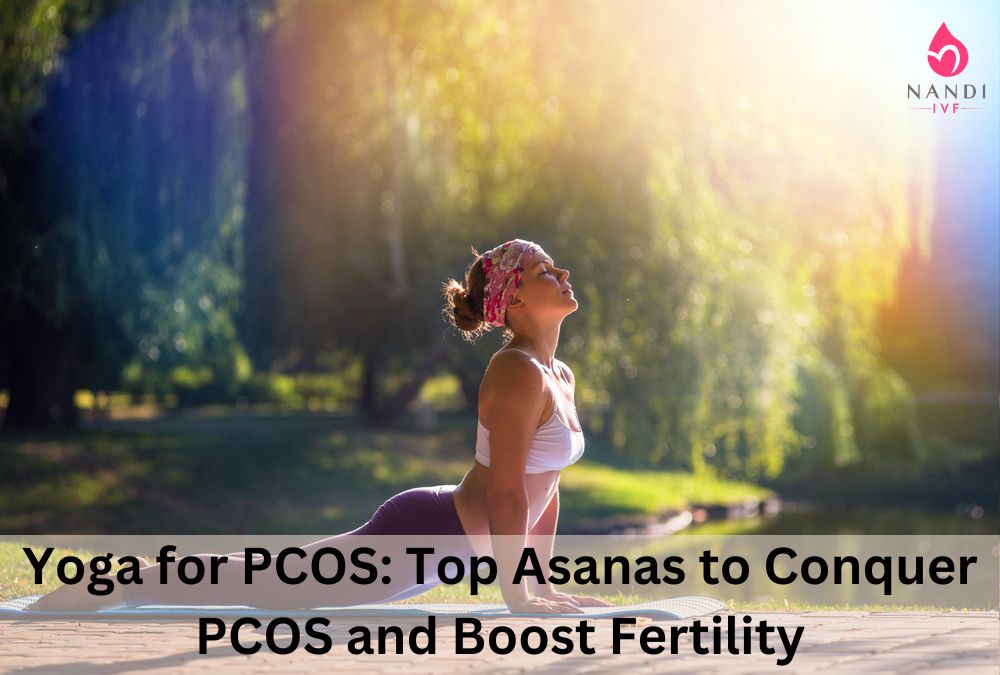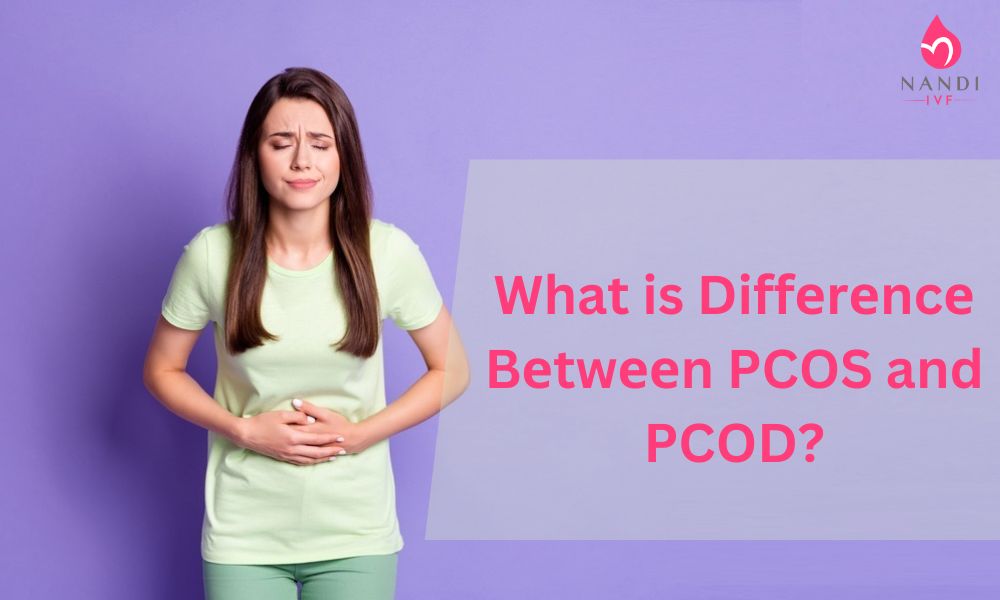Best age to get pregnant with PCOS: Polycystic Ovary Syndrome, or PCOS, is a hormonal disorder that affects women. It usually happens when the females remain in the reproductive age. Fertility issues are a concern for those with PCOS for obvious reasons. PCOS affects between 3.7% to 22.5% of the female population in India. Most women receive a PCOS diagnosis during their twenties or thirties. This happens when they attempt to conceive and undergo diagnostic testing. So, what is the best age to get pregnant with PCOS? We will get this answer and explore more about the condition in this comprehensive guide.
What is PCOS?
PCOS is a condition in women where their ovaries produce an abnormal amount of androgen. For the unversed, it is a male sex hormone also seen in women in small amounts. This hormone causes facial and body hair growth, including acne. Infertility is commonly seen in women who have PCOS. That is why pregnancy can become challenging for them. Understanding this condition, its factors, and its effects can help everyone know the best age to get pregnant with PCOS.

Read Also: Yoga for PCOS: Top Asanas to Conquer PCOS and Boost Fertility
PCOS and Fertility
Subfertility because of chronic anovulation implies lack or absence of ovulation (release of an egg). Moreover, PCOS patients have an increased egg count. It leads to a slower rate of the breakdown of the ovarian follicles. Usually, women with this condition display a delayed reduction in fertility with advancing age. It is different from the patients with normal ovulatory cycles because of the above-mentioned reasons. Studies have shown sustained fertility in women in the age group of 22-41 who have PCOS. Such studies have also talked about the best age to get pregnant with PCOS in detail.
Here is how PCOS usually affect fertility:
1. Ovulation Irregularities:
PCOS often leads to irregular ovulation or lack of ovulation. Such conditions make it difficult to predict the fertility level in women for conception.
2. Hormonal Imbalance:
Increased levels of androgens can interfere with normal hormone regulation. Hence it affects egg development and release in women with PCOS.
3. Insulin Resistance:
Most women suffering from PCOS have high insulin resistance. This can also affect ovarian function and disrupt the process of ovulation.
Read Also: What is Difference Between PCOS and PCOD?
Best Age to Get Pregnant With PCOS
The best age to get pregnant with PCOS is before a woman turns 30. However, women may also conceive up to the age of 37 years. Yet, fertility declines after age 32, with a steeper decline after age 37. The highest odds of natural conception for women with PCOS occur when they turn 35. The process occurs with regular ovulation and a lack of other fertility challenges.
Conception can happen within a year if a female’s body mass index (BMI) and hormonal and metabolic parameters are under control. A woman who does not get pregnant after a year of frequent unprotected sex should consult with a fertility specialist. Women over 35 may also require other kinds of fertility treatments.
Factors Influencing the Best Age to Get Pregnant With PCOS
Several factors can affect the best age to get pregnant with PCOS. Everyone, including women who want to embrace motherhood, must know about these relevant factors:
1. Fertility Status:
Women must start trying to conceive earlier if they experience difficulties with ovulation. The same advice also applies if the physician diagnoses them with infertility due to PCOS.
2. Health Status:
A few women may have other health conditions. Examples include diabetes or obesity. Hence, they must address these concerns and achieve a healthy lifestyle before attempting pregnancy.
3. Personal Preferences:
Individual circumstances and life goals play an important role in determining the best age to get pregnant with PCOS. Hence, women must also consider additional factors, like relationship stability, career aspirations, and emotional readiness.
Read Also: Empowering Couples For Parenthood: Navigating Pregnancy With PCOS And PCOD
Pregnancy Success Rate Among Women With PCOS
The success rate for pregnancy among women with PCOS may be different because it depends on various factors. The major ones include treatments and other health considerations. Here are some general insights associated with this aspect:
Spontaneous Pregnancy:
A few women with PCOS may achieve spontaneous pregnancy without any kind of medical intervention. The PCOS pregnancy success rate can be different. Yet, the estimates state that about 70–80% of females with PCOS will conceive within two years of trying to get pregnant.
Read Also: What is the PCOD Problem in Women And How Does it Affect Fertility?
Fertility Treatment:
Many women try to seek fertility treatments after knowing the best age to get pregnant with PCOS. Here, the PCOS pregnancy success rate can be different depending on the specific treatment method and individual factors. For instance:
- Ovulation-Inducing Medications: Physicians often prescribe medications, like Clomiphene or letrozole to induce ovulation. Success rates with such medications can be around 22% per cycle. The major factors here are age and infertility.
- Intrauterine Insemination (IUI): IUI involves placing the sperm directly into the uterus. It may have success rates of around 10-20% per cycle.
- In Vitro Fertilization (IVF): It has a record of higher success rates. These rates range from around 70% for women. It further depends on factors such as the individual’s specific circumstances and age.
Age:
Age influences the PCOS pregnancy success rate significantly. Younger women with PCOS have higher pregnancy success rates than older women. This is because fertility naturally declines with age.
Lifestyle and Weight:
A healthy weight through diet and exercise can impact pregnancy success rates for women with PCOS positively. Excessive weight can reduce fertility and exacerbate symptoms. A healthy lifestyle and weight loss may improve the chances of spontaneous pregnancy in women with PCOS.
Read Also: Understanding Sperm Cramps: Causes, Symptoms, and Treatment Options
Advantages of Early Pregnancy for Women With PCOS
We have already discussed the best age to get pregnant with PCOS. Moreover, it is always advantageous for women with this condition to have an early pregnancy. Here’s why.
Improved Fertility: Fertility declines naturally with age. Moreover, younger women with PCOS have a better chance of conceiving without any extensive medical interventions.
Reduced Complications: Younger women have a lower risk for pregnancy complications, like gestational diabetes and high blood pressure. Older women usually have such conditions.
Easier Symptom Management: PCOS symptoms remain milder in younger women. It makes symptom management and lifestyle modifications more effective for them as they prepare to get pregnant.
Better Response to Treatments: Younger women with PCOS may have a more favourable response to fertility treatments, increasing the likelihood of successful conception.
Lower Risk of Age-Related Infertility: Delaying pregnancy can lead to various age-related fertility issues. Women with PCOS may find it more challenging to overcome.
Reduced Risk of Comorbidities: Women with PCOS can start a family earlier to minimise the risk of developing associated health conditions. It avoids health issues, specifically insulin resistance and type 2 diabetes.
Healthier Pregnancy: Early pregnancy can result in healthier motherhood for women with PCOS. It leads to a decreased likelihood of complications and makes it a safer and more comfortable experience.
More Time for Family Planning: Starting a family early allows women with PCOS more flexibility and time for family planning. They can also space out pregnancies and have more children if desired.
Read Also: 7 Steps to Getting Pregnant with Blocked Fallopian Tubes
Final Thoughts on the Best Time to Get Pregnant With PCOS
A healthy lifestyle and weight loss remain important for women with PCOS, which helps them get pregnant quickly. Women with regular periods and a healthy lifestyle have an increased conception rate. Weight loss associated with healthy eating can be an effective tool to help one with PCOS to conceive in a few cases. They may also consider fertility-boosting measures, like changing diet and getting nutrition supplements. Hence, a holistic approach that combines medical advice and a healthy lifestyle can enhance the chances of a successful pregnancy journey for women with PCOS.
Looking to embrace motherhood soon? Visit us, the best IVF centre in Delhi. Get recommendations from professional health experts regarding the best time to get pregnant with PCOS and other concerns instantly. Contact us to learn more about our healthcare services.
Read Also: Understanding the Signs of Bad Egg Quality – Taking the Right Steps
Read Also: PCOD Problem After Marriage: Reasons Behind Women’s Experience
Read Also: After How Many Weeks IVF Pregnancy Is Safe
Read Also: Normal Pus Cells in Urine During Pregnancy: Comprehensive Guide
Read Also: After Embryo Transfer Day by Day Symptoms
Read Also: Apricots in Pregnancy: Unveiling the Nutritional Bonanza for Expectant Mothers






